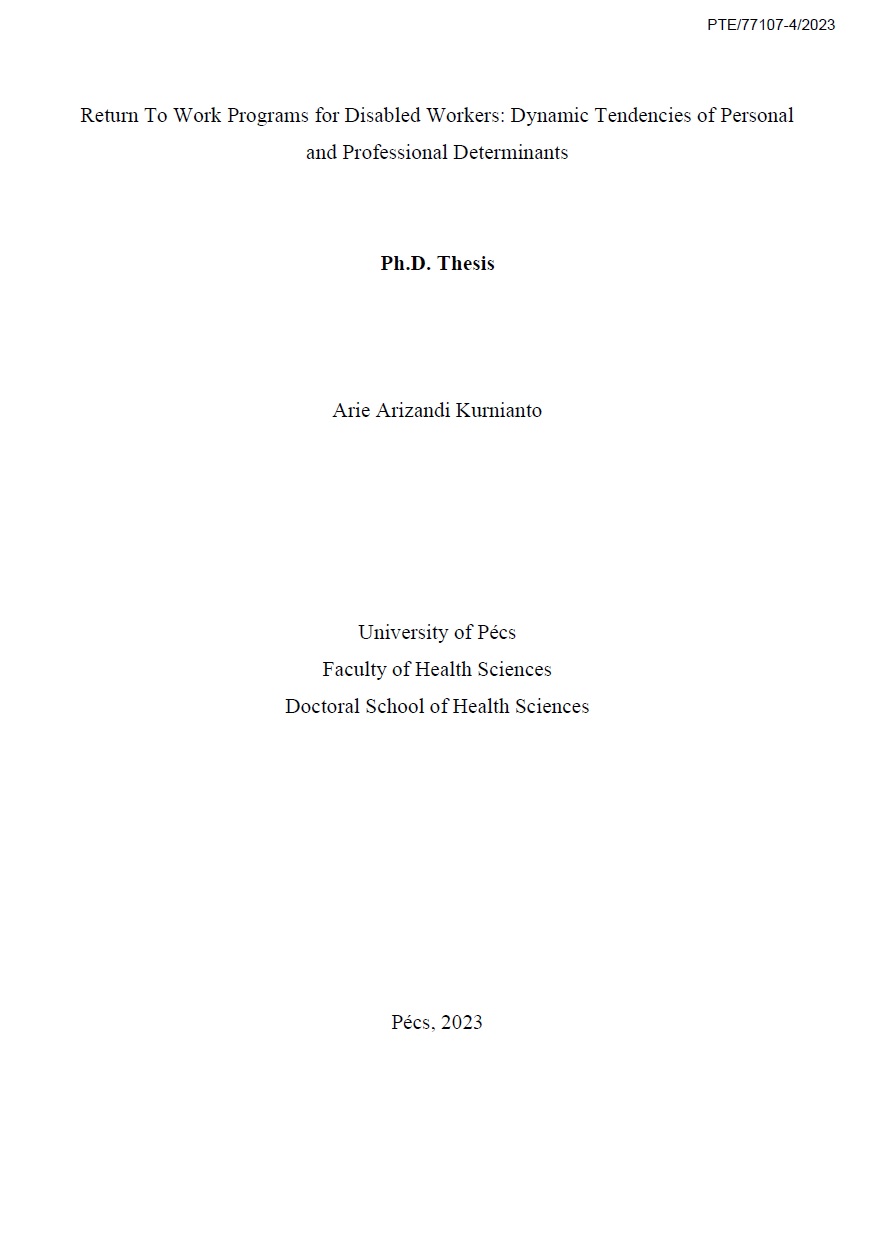Return To Work Programs for Disabled Workers: Dynamic Tendencies of Personal and Professional Determinants
Abstract
This study investigates the factors influencing the effectiveness of return-to-work (RTW) programs and provides new insights into their implementation. The research highlights the importance of thorough monitoring and evaluation, which are critical for achieving positive outcomes for workers and employers. The study also demonstrates the positive impact of RTW programs on the quality of life and employment opportunities of workers with disabilities, particularly during the COVID-19 pandemic.
The findings reveal that RTW programs effectively improve the physical and psychological health of participants, leading to enhancements in various quality of life domains. However, it is crucial to address the emotional and psychological challenges faced by case managers involved in the RTW program. Interventions focusing on workload management, stress management, and access to mental health support are necessary to ensure their well-being and the overall success of the program.
Importantly, this study evaluates the economic consequences of RTW programs in a developing country, specifically Indonesia. The results demonstrate that implementing RTW programs can lead to higher success rates, reduced workdays lost, and potential cost savings in medical care, reinforcing the importance of such programs in improving outcomes for injured workers.
The findings of this study have significant implications for policy makers and practitioners in developing countries seeking to implement similar initiatives to mitigate the economic consequences of work injuries. It underscores the beneficial impact of RTW programs in reducing medical costs and provides valuable guidance for improving the well-being and outcomes of injured workers.

